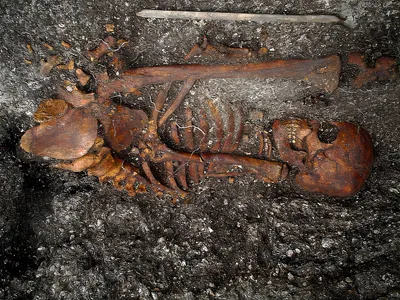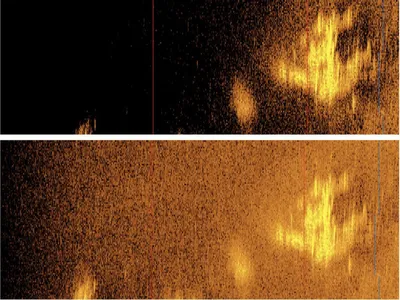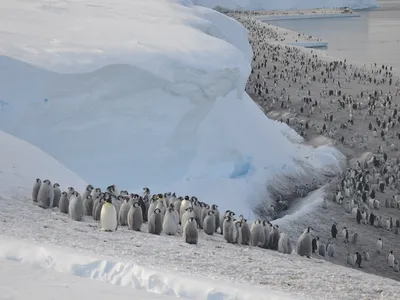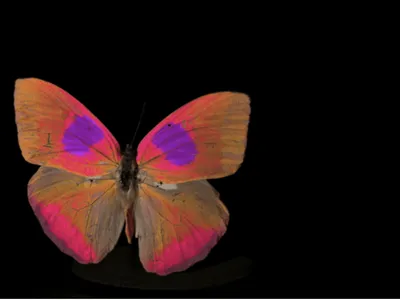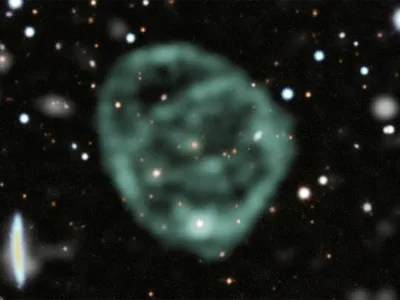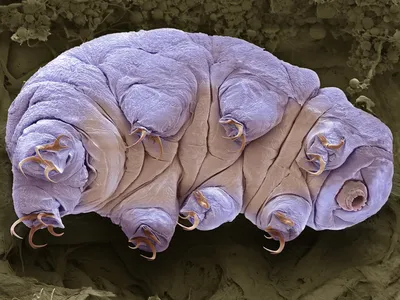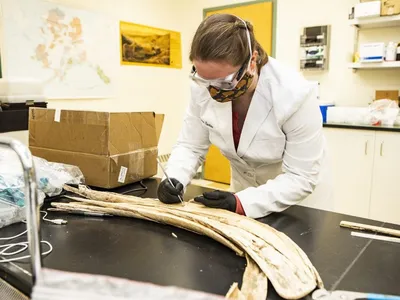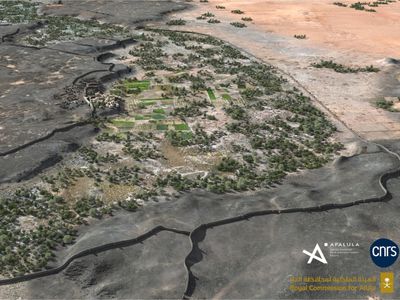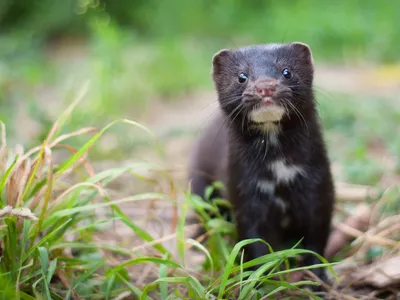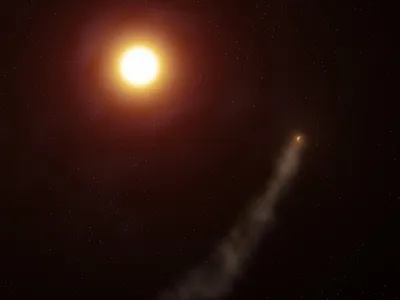New Research
DNA From 2,000-Year-Old Skeletons Hints at the Origins of Syphilis
In contrast to a common theory, new findings suggest Columbus-led expeditions may not have transported syphilis to Europe from the Americas, though they cannot disprove the claim with certainty
Have Researchers Found Amelia Earhart's Long-Lost Plane?
A new sonar image shows an airplane-shaped object resting on the bottom of the Pacific Ocean, not far from where Earhart and her navigator, Fred Noonan, went missing in 1937
Archaeologists Uncover Abandoned Ancient Wine Shop in Greece
The Roman-era structure, filled with pottery shards and coins, was destroyed by a sudden and mysterious disaster
Bodies and Treasure Found in Polish Lake Could Be Connected to Ancient Water Ritual
New research suggests the Chelmno group followed their water burials with mass deposits of bronze jewelry and artifacts
Prehistoric Chewing Gum Reveals Diet, Oral Health of Stone Age Teenagers
From preserved DNA, researchers identified which plants and animals the young people would have eaten or used for making clothing—and they found one case of a severe gum infection
Scientists Discover Four New Emperor Penguin Colonies From Satellite Images of Antarctica
The findings are a rare bright spot for the birds, which scientists predict will be mostly extinct by 2100
See the World Through the Eyes of Animals With These Stunning New Videos
By making ultraviolet light accessible to our eyes, a novel camera system reveals how insects, birds and other creatures experience color
People Drink Less Wine When Bars Remove the Largest Glass, Study Finds
The simple change could help reduce alcohol consumption and improve health at the population level, U.K. researchers say
Top Harvard Cancer Institute Will Retract Six Studies and Correct 31 More After Photoshop Claims
British biologist and blogger Sholto David alleged that executives at the Dana-Farber Cancer Institute published papers with manipulated data and images
Scientists Find Indicators in Blood Linked to Long Covid, Hinting at Future Treatments
One part of the immune system appeared to be overly active in long Covid patients in a small study, a finding researchers hope could help diagnose or treat the condition
Giant, 'Odd' Circles of Radio Waves in Space May Finally Have an Explanation
The mystifying orbs could be caused by galactic winds, propelled by a period of rapid star formation and death
Seabed Trawling May Be Spewing Huge Amounts of CO2 Into the Atmosphere
New research suggests the controversial fishing method is also contributing to increased ocean acidification, which can harm marine wildlife
Astronomers Discover the Oldest Known Black Hole, Breaking a Record Set Last Year
The supermassive structure dates to about 400 million years after the Big Bang, and it’s particularly large for its age
How Are Tardigrades So 'Indestructible?' Scientists Finally Have an Explanation
The tiny animals nicknamed "water bears" can endure extreme conditions by entering a deep hibernation with a switch at the molecular level, a new study finds
Meet Elma, a Woolly Mammoth Who Roamed Far and Wide More Than 14,000 Years Ago
By analyzing a fossilized tusk, scientists have pieced together the animal's movements
Archaeologists Discover 4,000-Year-Old Wall Built Around Oasis in Saudi Arabia
The nine-mile-long structure surrounding the Khaybar Oasis may have once protected against raiders
Traps Scented Like Mink Butts Could Be Key to Removing the Invasive Species From the U.K.
A successful eradication trial in East Anglia has raised biologists' hopes for ridding Great Britain of the destructive creatures, which threaten native wildlife
DNA From the Ocean's 'Twilight Zone' Could Lead to New Lifesaving Drugs, Scientists Say
Researchers catalogued the genes of more than 300 million groups of marine bacteria, viruses and fungi in hopes that the database could lead to breakthroughs in medicine, energy and agriculture
Why Do Dogs Wag Their Tails? Scientists Examine the Endearing Behavior
Dogs communicate through tail-wagging, and humans may have selected for the trait during domestication
This Distant Exoplanet Has a 350,000-Mile-Long Tail, Like a Comet
A stream of particles flung from the planet's star is causing its atmosphere to boil away and lose 200,000 tons of mass per second
Page 1 of 236
